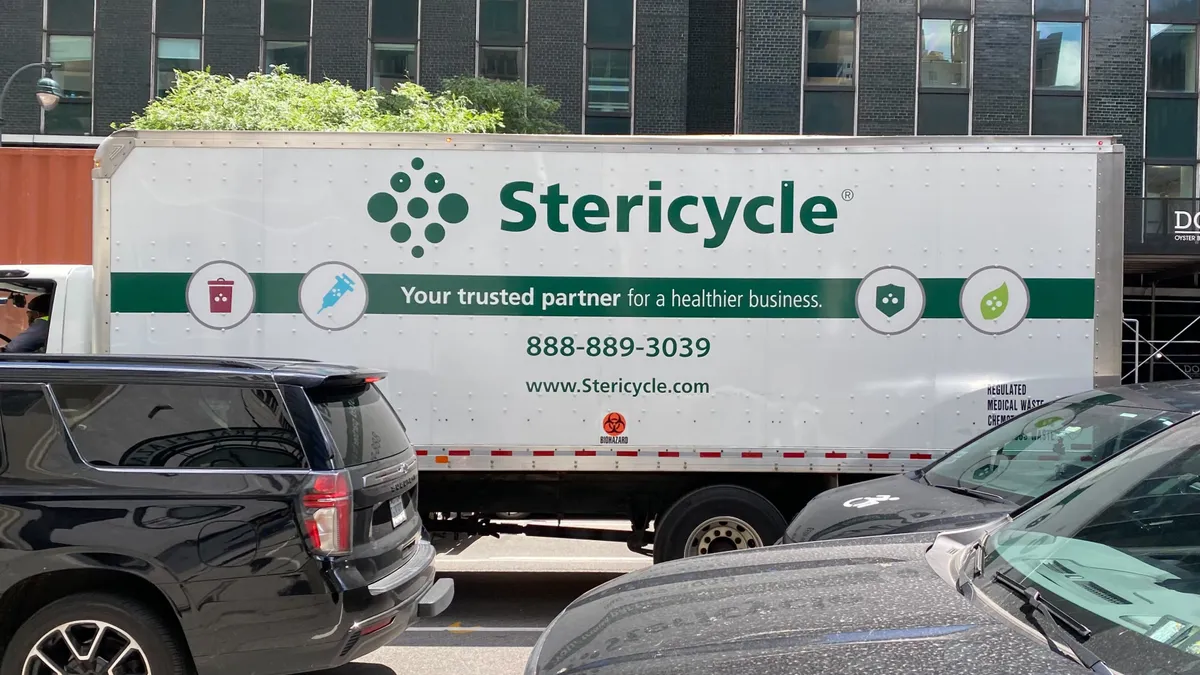Boston is casting a wide net for waste and recycling ideas as it looks to consider different structures for future contracts while making progress on long-term waste reduction goals.
Over the summer, the city’s Public Works Department opened a request for information to solicit input from “startups, businesses, academic institutions, consultants and non-profits,” among others, about technology and consumer engagement innovations. Interviews are ongoing and the submission form closes March 3, 2025.
"The idea is to get people who are working in the space and have not had the opportunity to connect with meaningful stakeholders,” said Avantika Mathur, a waste reduction fellow with the city, adding that the goal is to create “a formal, equitable platform for everybody to respond."
Boston’s zero waste progress
Boston finalized a zero waste plan in 2019, with a goal at the time of potentially reaching an 80% recycling rate by 2035. According to the RFI, Boston generates an estimated 250,000 tons of residential waste per year. PWD does not manage the city’s commercial waste stream.
The city has expanded multiple programs in recent years as part of its waste reduction goals. Key examples include the launch of a curbside organics program in 2022, which now covers an estimated 24,000 residents via a contract with Save That Stuff and Garbage to Garden.
According to a presentation by Mathur at a recent Circular Cities Week event, that program collected an estimated 1,675 tons of material in the most recent year of data. Additionally, the city maintains more than a dozen organics drop-off bins that collected an estimated 250-plus tons in the latest fiscal year.
Boston has also ramped up textile and mattress collections, driven by waste ban policies from the Massachusetts Department of Environmental Protection. The city collected more than 19,400 mattresses between June and October of this year, during peak college and apartment moving season. It also collected over 900,000 pounds of textiles during FY24 via dozens of drop-off bins.
RFI and future contracts
The RFI calls for ideas in four categories: Collection and disposal innovations, waste prevention and recycling, data and analytics, and policy and behavior change. It is also open to other ideas that may not fit within these categories.
Mathur said the first category is a key priority, due in part to the city’s focus on rodent control. Boston recently put out a rodent action plan that mentions waste management. Containerization is another area of interest, as it has been in New York City. While some parts of Boston use wheeled carts, others don’t due to space constraints.
Technology also comes up in multiple RFI categories. The RFI mentions an interest in route optimization ideas, as well as fleet electrification. Multiple sections also mention artificial intelligence and data analytics. Mathur said data is a growing focus area for the department, with an interest in “technologies that help us simplify all the data that we're collecting.”
Mathur said the agency doesn’t have a set timeline yet for enacting these ideas, but it was open to hearing from anyone — including with ideas that may not fit clearly into the four categories.
Last year, during a council hearing about rodent issues, a PWD representative indicated that the city was “reconsidering everything” for its next waste and recycling collection contract that was set to expire in June 2024. Other recycling and disposal agreements were also set to expire on a similar timeline, though the city indicated it was more likely they would be extended.
PWD later ended up buying itself more time by reupping or extending these contracts, including for collection, for multiple years.
This included a new three-year agreement with Capitol Waste Services to collect residential refuse and recyclables across all of the city’s districts. The contract, which took effect in July, will run for three years and has the option for two one-year extensions. According to a May letter to Mayor Michelle Wu from Chief of Streets Jascha Franklin-Hodge, obtained via a public records request, the contract includes provisions for “additional accountability, new packer trucks, and higher staffing.”
Franklin-Hodge said in the letter that the city opted to continue working with Capitol rather than put out a new RFP because of limited market competition. Its last RFP, in 2019, only received two responses.
“Our survey of the current market and discussions with companies in the industry strongly suggested that a competitive bid process would not yield better options for the city at this time. Over the term of this contract, we will evaluate ways to implement new policies and restructure our service model to attract more market participants with the goal of executing our next contract through a solicitation that is able to draw meaningful market competition.”
The city also chose to extend for three years an existing recyclables processing contract with Casella Waste Systems, which recently spent an estimated $20 million to upgrade its Boston MRF. It did the same for disposal by extending contracts with Reworld and WIN Waste Innovations for three years each. A yard waste contract with Republic Services, which started in 2022, is also set to reach its initial expiration date alongside the other agreements in June 2027.
Many of these companies have held similar contracts with Boston before, and they could be well-positioned to receive new ones due to their local infrastructure. The city’s RFI aims to explore all possible options, while stipulating this process “is for informational purposes only, and respondents may help shape a future RFP, but they are not guaranteed a contract or award in the future.”



















